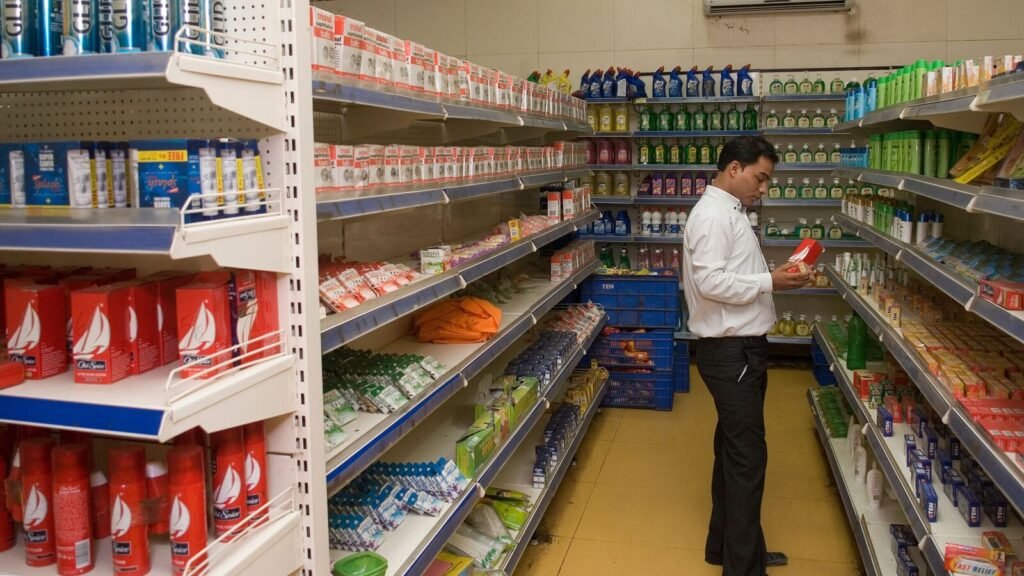Amazon-backed More Retail plans expansion of supermarkets in India

In 2019—Samara Capital along with Amazon.com Inc., agreed to buy Aditya Birla group’s food and grocery retail chain. The acquisition of Aditya Birla Retail Ltd, which operated More, was done via Samara Capital’s arm Witzig Advisory Services Pvt. Ltd in which Amazon is a minority shareholder.
Foreign retailers are bound by investment rules that cap investments in local retail chains sans a local partner.
Over the last two years the chain has shuttered unprofitable stores, exited categories such as general merchandise, reduced the number of hypermarkets or large format stores and trimmed employees in corporate functions.
“We were a multi-format strategy retailer; we’re now a single format strategy now. Now, we’re a supermarket business and that’s the business we are expanding,” Vinod Nambiar, Managing Director, More Retail, said speaking to Mint earlier this month.
The retailer operates over 750 stores in 270 towns in India with a greater concentration in South and East India. In FY22 it had over 900 stores.
Investors funded the retailer’s losses post the acquisition—especially during the pandemic when offline retail operations were adversely impacted.
“The acquisition by Amazon was made with this in mind—we’ll build a hybrid model, we’ll scale it across India, we’ll scale an offline business plus an online business. The model is really firing,” Nambiar added.
The retailer sells staples, grocery, non-food items, bakery, dairy, frozen and fresh produce. Plans are underway to add more stores.
“We will add about another 30 by the end of this financial year. Between the beginning of the next financial year and March 2026 we’ll add about 150 stores; only supermarkets. We will expand at a pace which is economically sensible,” Nambiar said. Of the current 758 stores—738 are supermarkets; while 20 are hypermarkets. “These 20 hypermarkets will become 10 in the next few months. We will be a small store network i.e. neighborhood supermarkets sized at around 2,500 square feet,” he added.
In FY24, the retailer reported standalone revenues of ₹4148.69 crore. However, the company incurred a loss of ₹532.62 crore, which was marginally lower than the loss of ₹550 crore reported in the previous fiscal year, per information sourced from business intelligence platform Tofler.
More was set-up by Aditya Birla group in 2006 until the acquisition of More by More Consumer Brand Private Limited (MCBPL) in 2019. The firm’s losses had widened after it acquired five loss-making Total Hypermarkets stores from Jubilant Industries Ltd and its unit Jubilant Agri and Consumer Products Ltd in May 2015.
The move to add stores comes as quick commerce companies have disrupted the retail landscape. These platforms, renowned for swift deliveries and discounts, are posing a significant challenge to traditional mom-and-pop stores.
Modern trade, encompassing e-commerce, which constitutes 12% of all fast-moving consumer goods sales, experienced a growth of 3.8% in the September quarter, according to data released by market researcher NIQ earlier this month. This is a decline from the 6.8% growth in the previous quarter, reflecting a broader slowdown in urban consumption.
More competes with the likes of D-Mart and Reliance Fresh in India.
Interestingly, More stores are used as forward deploy inventory points for Amazon’s Fresh business in different cities. Fresh is Amazon’s 2-hour slotted delivery service of daily essentials and groceries that effectively pits it against quick commerce players.
“We are Amazon’s strategic partner in India for grocery; we want to get Amazon Fresh to every city that we are in. All expansion of Amazon Fresh today is with us,” he said.
In the top 14 cities, Fresh orders are fulfilled from either Amazon warehouses or More stores. For the rest of India, all Fresh orders are fulfilled via More stores. As of September 2024, 277 More stores were actively serving Amazon Fresh orders, an increase from 150 a year ago. This store count for Fresh will continue to expand. “We are not ceding ground to quick commerce,” Nambiar added.
Meanwhile, the company is planning to raise capital to fund future expansion. “We are raising money now through a combination of current investors and some new investors. We want to take the company public to fund our expansion for the next decade. Markets have to be good and business has to be good,” Nambiar said without sharing specific details.








